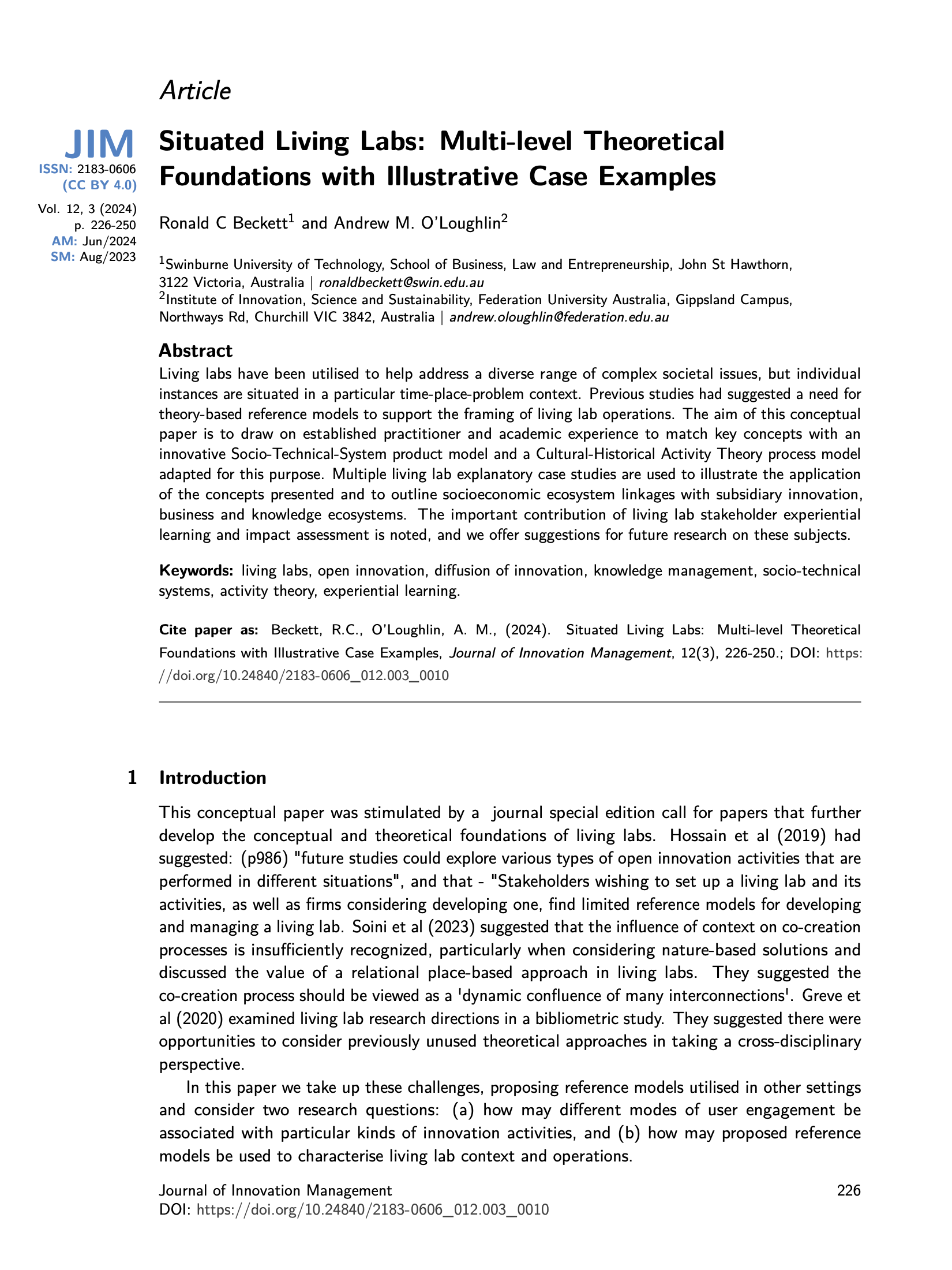Situated Living Labs: Multi-level Theoretical Foundations with Illustrative Case Examples
Main Article Content
Abstract
Living labs have been utilised to help address a diverse range of complex societal issues, but individual instances are situated in a particular time-place-problem context. Previous studies had suggested a need for theory-based reference models to support the framing of living lab operations. The aim of this conceptual paper is to draw on established practitioner and academic experience to match key concepts with an innovative Socio-Technical-System product model and a Cultural-Historical Activity Theory process model adapted for this purpose. Multiple living lab explanatory case studies are used to illustrate the application of the concepts presented and to outline socioeconomic ecosystem linkages with subsidiary innovation, business and knowledge ecosystems. The important contribution of living lab stakeholder experiential learning and impact assessment is noted, and we offer suggestions for future research on these subjects.
Article Details
Authors who publish with this journal agree to the following terms:
- Authors retain copyright and grant the journal right of first publication with the work simultaneously licensed under a Creative Commons Attribution License that allows others to share the work with an acknowledgement of the work's authorship and initial publication in this journal.
- Authors are able to enter into separate, additional contractual arrangements for the non-exclusive distribution of the journal's published version of the work (e.g., post it to an institutional repository or publish it in a book), with an acknowledgement of its initial publication in this journal.
- Authors are permitted and encouraged to post their work online (e.g., in institutional repositories or on their website) prior to and during the submission process, as it can lead to productive exchanges, as well as earlier and greater citation of published work (See The Effect of Open Access).

